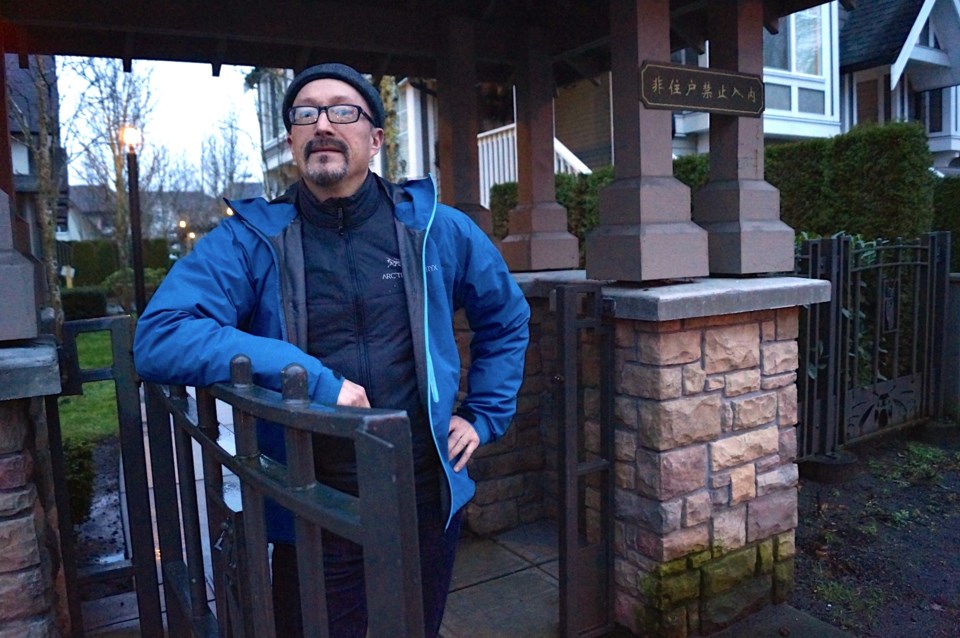Prospective B.C. Human Rights Tribunal complainant Andreas Kargut says he and his non-Mandarin speaking Wellington Court strata members are willing to take their fight to Victoria, should the tribunal deny their request for a hearing.
“If this doesn’t get resolved I’m knocking on Victoria’s door,” said Kargut, who is hoping to meet with local MLA Linda Reid this week.
It’s a route he may have to take, given there is no requirement under human rights law that states strata council meetings must be conducted in one of Canada’s two official languages, according to a B.C. human rights expert.
The case would likely be heard as one of discrimination based on place of origin and not race, if it is heard at all, said Robyn Durling, the spokesman for the B.C. Human Rights Clinic, which is operated by the Community Legal Assistance Society and funded by the BC Ministry of Justice to provide free representation to complainants who have cases before the BC Human Rights Tribunal.
“Under the human rights code there’s no protection for language. Sometimes (language) is brought under grounds of place of origin,” said Durling, noting anyone, regardless of race, could speak Mandarin.
He said language has been recognized as a human right in some cases, such as the right to a sign language interpreter.
Last month, Kargut filed a human rights claim of racial discrimination after his strata council decided to conduct all council meetings in Mandarin. That move followed allegations by Kargut and other non-Mandarin speaking strata members that they were collectively ejected from council.
Kargut said the Mandarin-speaking contingent was unhappy with the past council spending money on repairing rotting wood beams.
The tribunal has not made a decision yet as to whether or not the case will proceed to a hearing.
Notably, there are no language requirements for council meetings under the provincial Strata Property Act.
Durling said a strata council has a “duty to accommodate” strata members, however that duty is limited in many instances.
Generally, councils will conduct meetings in a language that makes the most business sense, said Durling.
If that means speaking Mandarin, then the council could then be legally obliged to offer Mandarin-to-English interpretation services, so long as it does not cause “undue hardship” for the council.
For instance, if a number of other strata members ask for interpretation services, especially in less well-known languages, the council may not be required to provide multiple interpreters, if it caused hardship.
“There’s a limited right to accommodate,” Durling said.
What does that mean to Kargut?
Not much, he said.
Kargut contends whether the claim is discrimination based on race or place of origin, it’s still discrimination.
Kargut said the only solution could be a return to English.
“If they’re going to hire a translator then the meetings should be conducted in English and for those who don’t have the benefit of knowing English as their language then, if anything, an English-to-Mandarin translator should come,” said Kargut, who noted that’s exactly what the past council offered to do in the first place.
“They have literally gotten rid of dealing with anyone who doesn’t speak their language. It all started when we all got tossed out of council,” said Kargut, who claimed he is worried about the future upkeep of his property.
The council’s president, Ed Mao, has not responded to multiple email inquiries from the Richmond News.
Kargut said he was happy to see general support in the community and across the country for his claim, after the Richmond News broke the story in late December.
Kargut said he met with local MP Joe Peschisolido, who told him Canada is a multicultural country bound by the English and French languages.
But because the laws that govern strata councils are provincial, Kargut said he wants change at that level and he’s hoping to meet with local MLAs to bring about change.



